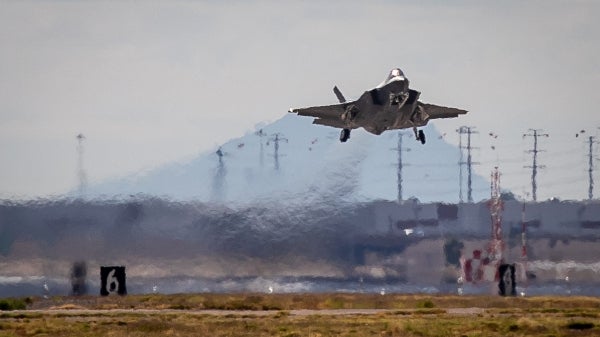ASU's Krauss elected board chair for Bulletin of Atomic Scientists

ASU physicist Lawrence Krauss speaks at an ASU Origins event in 2013. Krauss is the director of the Origins Project at ASU, which explores key questions about who we are and where we came from, and then holds open forums to encourage public participation.
Photo by: Andy DeLisle
The Bulletin of the Atomic Scientists has announced that Lawrence Krauss, an Arizona State University Foundation Professor in the School of Earth and Space Exploration and the Department of Physics, has been elected chair of the organization’s Board of Sponsors.
Nobel laureate Leon Lederman has been elected chair emeritus, marking the first time the Bulletin has bestowed such an honor. Lederman and Krauss have co-chaired the Bulletin’s Board of Sponsors since 2009.
The Bulletin of the Atomic Scientists engages science leaders, policy makers and the interested public on topics of nuclear weapons and disarmament, the changing energy landscape, climate change and emerging technologies. It does this through an award-winning journal, the iconic Doomsday Clock, public-access websites and regular meetings.
Members of the Bulletin’s Board of Sponsors are recruited by their peers from among the world’s most accomplished scientific leaders to amplify the gravity and importance of what the Bulletin publishes, and to provide expert counsel on issues of global security, science and survival – particularly for the organization’s annual Doomsday Clock statement.
The board was founded in 1948 by Albert Einstein, and its first chair was J. Robert Oppenheimer. It currently has 35 members, including 16 Nobel laureates. Krauss was appointed to the board in 2006, along with Stephen Hawking.
“I have known and respected the Bulletin of the Atomic Scientists since I was a graduate student, and never could have anticipated, given the distinction of the Board of Sponsors, that I would ever have the opportunity to chair this group,” Krauss said.
“Leon Lederman has been a remarkable scientist and humanitarian throughout an equally remarkable career in physics research,” Krauss said. “It has been one of the greatest privileges of my career to co-chair the Board of Sponsors along with a scientist of his distinction, and it is my greatest honor to now chair this remarkable group of scientists, scholars and public intellectuals.”
Krauss elaborated on the broadened mission of the Bulletin in recent years to include existential threats beyond that of nuclear war.
“In the 21st century new threats have emerged, from global climate change to the possibility of cyber terrorism,” Krauss explained. “This recent vote of confidence from the board has re-energized me to help my colleagues at the Bulletin and on the Board of Sponsors continue to lead the effort to explore and expose such threats, and in so doing also examine ways that humanity can avert them.”
Krauss is internationally known for his work in theoretical physics and cosmology and he is a well-known author and science communicator. His research covers science from the beginning of the universe to the end of the universe. His research interests include the interface between elementary particle physics and cosmology, the nature of dark matter, general relativity and neutrino astrophysics.
In addition to being a Foundation Professor, Krauss is the director of the Origins Project at ASU, which explores key questions about our origins, who we are and where we came from, and then holds open forums to encourage public participation.
Krauss is the only physicist to receive major awards from all three U.S. physics societies: the American Physical Society, the American Institute of Physics and the American Association of Physics Teachers. In 2012 he was given the Public Service Award from the National Science Board for his efforts in communicating science to general audiences. He also was awarded the “Roma Award Urbs Universalis 2013” by the mayor of Rome.
Krauss has authored more than 300 scientific publications and nine books, including his most recent best-seller, "A Universe from Nothing," which offers provocative, revelatory answers to the most basic philosophical questions of existence. It was on the New York Times best-seller list for nonfiction within a week of its release.
More Local, national and global affairs

ASU creates pathways to public service careers for military students
The School of Public Affairs at Arizona State University is making careers in public service easier to access for military…

Minting community leaders and stellar citizens: ASU’s Public Service Academy approaches 10-year milestone
Airports that are easier to navigate.Health care that is simple to access.Helping underrepresented youth reach college.These are…

'War Game' documentary highlights threats of extremism to national security
The riots at the U.S. Capitol on Jan. 6, 2021, were a wake-up call that political divisiveness can turn violent, threatening the…